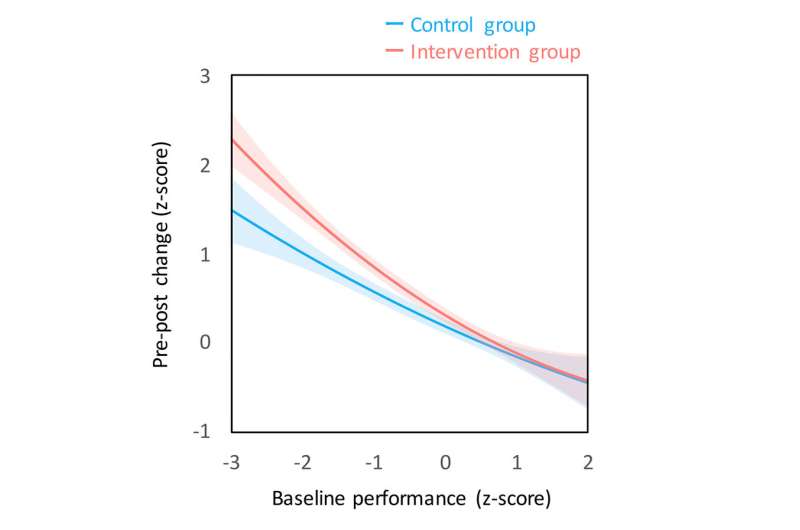Regular physical activity seems to enhance cognition in children who need it most

A common school-age stereotype is that smart kids are unathletic. However, as a recent study lead by Associate Professor Keita Kamijo at the University of Tsukuba and Assistant Professor Toru Ishihara at Kobe University shows, physical activity is linked to better cognitive ability, which is in turn related to academic performance in school. Understanding the effects of physical activity on cognition has been difficult for several reasons. "Previous studies looked at the issue too broadly," explains Professor Kamijo, "When we broke down the data, we were able to see that physical activity helps children the most if they start out with poor executive function."
Executive functions refer to three types of cognitive skills. The first is the ability to suppress impulses and inhibit reflex-like behaviors or habits. To assess this ability, children were asked to indicate the color in which words like "red" and "blue" were displayed on a computer screen. This is easy when the words and colors match ("red" displayed in red font), but often requires inhibition of a reflex response when they don't ("red" displayed in blue font). The second skill is the ability to hold information in working memory and process it. This was evaluated by testing how well children could remember strings of letters that vary in length. The third cognitive skill is mental flexibility. This was measured by asking children to frequently switch the rules for categorizing colored circles and squares from shape-based to color-based.
Professor Kamijo and Professor Ishihara and their colleagues re-analyzed the data from previous experiments in which executive function was assessed in children before and after several months of daily intervention with physical activity, such as aerobic activities, ball games, and playing tag. They looked at a factor that was missed in the initial analyses. That is, they considered whether the effectiveness of the intervention depended on the initial baseline scores.
The researchers found that cognitive skills, which have been shown to closely associate with academic performance, improved most in children whose skills were initially poor. The team also found that increased time spent doing regular physical activity did not negatively affect cognitive function in children who started out with better cognitive functions.
The finding that daily physical activity can improve executive function in children who might need it the most has some practical implications. "Because the cognitive functions evaluated in our study are related to academic performance," says Professor Kamijo, "we can say that daily physical activity is critical for school-aged children. Our findings can help educational institutions design appropriate systems for maximizing the effects of physical activity and exercise."
More information: Toru Ishihara et al. Baseline Cognitive Performance Moderates the Effects of Physical Activity on Executive Functions in Children, Journal of Clinical Medicine (2020). DOI: 10.3390/jcm9072071




















